А. Роджер Экерч - На исходе дня. История ночи
- Название:На исходе дня. История ночи
- Автор:
- Жанр:
- Издательство:Азбука
- Год:2010
- Город:Санкт-Петербург
- ISBN:978-5-389-01075-8
- Рейтинг:
- Избранное:Добавить в избранное
-
Отзывы:
-
Ваша оценка:
А. Роджер Экерч - На исходе дня. История ночи краткое содержание
На исходе дня. История ночи - читать онлайн бесплатно полную версию (весь текст целиком)
Интервал:
Закладка:
25. Francis B. Gummere, "On the Symbolic Use of the Colors Black and White in Germanic Tradition," Haverford College Studies 1 (1889), 116; John Fletcher, The Nightwalker, or the Little Theife (London, 1640); Daniel Defoe, A System of Magick… (London, 1727), 380–381; Normal Cohn, Europe's Inner Demons: An Enquiry Inspired by the Great Witch-Hunt (New York, 1975), 66.
26 C. Scott Dixon, The Reformation and Rural Society: The Parishes of Brandenburg-Ansbach-Kulmbach, 1528–1603 (Cambridge, 1996), 191; Thomas, Religion and the Decline of Magic, 472, 473–477; Nashe, Works, I, 346; George C. Schoolfleld, The German Lyric of the Baroque in English Translation (New York, 1966), 199.
27. Nashe, Works, 1,346,348; Bella Millett and Jocelyn Wogan-Browne, Medieval English Prose for Women: Selections from the Katherine Group and Ancrene Wisse (Oxford, 1990), 91; Jacob Bauthumley, The Light and Dark Sides of God… (London, 1650), 29.
28. Hale, A Collection of Modern Relations of Matter of Fact, Concerning Witches & Witchcraft… (London, 1693), 16,12–13; Thomas, Religion and the Decline of Magic, 472.
29. SAS, XIII, 652; Le Loyer, Specters, fo. 78; July 1, 1712, Donald F. Bond, ed., The Spectator (Oxford, 1965), III, 572; Essex People, 1750–1900. From Their Diaries, Memoirs and Letters (Chelmsford, Eng., 1972), 32.
30. Brand 1777, II, 430–431; A View of London and Westminster: or, the Town Spy, etc. (London, 1725), 1–2; Robert Holland, comp., A Glossary of Words Used in the County of Chester (1886; rpt. ed., Vaduz, Liecht, 1965), 182; Brand 1848, II, 507–512; Minor White Latham, The Elizabethan Fairies: The Fairies of Folklore and the Fairies of Shakespeare (1930; rpt. edn., New York, 1972), 219–262.
31. Georgina F. Jackson, comp., Shropshire Word-Book… (London, 1879), 117; Samuel Butler, Hudibras, the First Part (London, 1663), 19.
32. Mr. Pratt, Gleanings through Wales, Holland, and Westphalia (London, 1798), 142, 136; T. Campbell, Philosophical Survey of the South of Ireland… (London, 1777), 280; Archaeologia: or Miscellaneous Tracts Relating to Antiquity (London, 1814), 144; R. D. Heslop, comp., Northumberland Words… (London, 1892), 1,257; Brand 1777, II, 359.
33. AJ. Gurevich, Categories of Medieval Culture, trans. G. L. Campbell (London, 1985), 107–108; Lewis, Diary, 17; Thomas, Religion and the Decline of Magic, 587–606.
34. Thomas Alfred Spalding, Elizabethan Demonology… (London, 1880), 54; WJ, Nov. 5, 1726; John Holloway, ed., The Oxford Book of Local Verses (Oxford, 1987), 215–216; Cannon, Diary, 134; Jean Claude Schmitt, Ghosts in the Middle Ages: The Living and the Dead in Medieval Society (Chicago, 1998), 185; Nov. 29, 1667, Pepys, Diary, VIII, 553; Brand 1777, II, 430.
35. John Carr, The Stranger in Ireland: or, a Tour in the Southern and Western Parts of that Country in the Year 1805 (1806; rpt. edn., Shannon, Ire., 1970), 264–265; Anne Plumptre, A Narrative of a Three Years' Residence in France… (London, 1810), III, 179; Craftsman (London), May 20, 1732; Dietz, Surgeon, 166–167; Pierre Goubert, The Ancien Regime: French Society 1600–1750, trans. Steve Cox (London, 1973), 280; Caroline Frances Oates, "Trials of Werewolves in the Franche-Comte in the Early Modem Period" (Ph. D. diss., Univ. of London, 1993); Le Loyer, Specters, fo. 101.
36. Scott, Witchcraft, 29; Geert Mak, Amsterdam, trans. Philipp Blom (Cambridge, Mass., 2000), 48; E. S. De Beer, ed. The Correspondence of John Locke (Oxford, 1976), 421–422; Francis Grose, A Provincial Glossary (1787; rpt. edn., Menston, Eng., 1968), 17.
37. Saint Basil, Exegetic Homilies, trans. Sister Agnes Clarke Way (Washington, D. C, 1963), 26; Ellery Leonard, trans., Beowulf (New York, 1939), 8,5; Martha Grace Duncan, "In Slime and Darkness: The Metaphor of Filth in Criminal Justice," Tulane
Law Review 68 (1994), 725–801; James Sharpe, Instruments of Darkness: Witchcraft in England, 1550–1750 (New York, 1996), 15; Cavendish, Powers of Evil, 87, 96–97; Cohn, Europe's Inner Demons, 207–210.
38. Muchembled, "La Nuit sous l'Ancien Regime," 239–241; Schmitt, Ghosts in the Middle Ages, 177; Thomas, Religion and the Decline of Magic, 455; Harris, Night's Black Agents, 25–26, 33; Nancy Cadola, "Wraiths, Revenants and Ritual in Medieval Culture," PP 152 (1996), 3—45; Pierre Jonin, "L'Espace et le Temps de la Nuit dans les Romans de Chretien de Troyes," Melanges de Langue et de Litterature Medievals Offerts a Alice Planche 48 (1984), 235–246.
39. Cohn, Europe's Inner Demons, 71–74, 97,100–101; Lynn A Martin, Alcohol, Sex, and Gender in Late Medieval and Early Modern Europe (New York, 2001), 79; Thomas, Religion and the Decline of Magic, 454–456.
40. G. R. Quaife, Wanton Wenches and Wayward Wives: Peasants and Illicit Sex in Early Seventeenth Century England (London, 1979), 31; S. Taylor, "Daily Life — and Death — in 17th Century Lamplugh," Transactions of the Cumberland & Westmorland Antiquarian & Archaeological Society, New Sen 44 (1945), 138–141; Thomas, Religion and the Decline of Magic, 455–461,498—499.
41. Cohn, Inner Demons, 105; VG, Aug. 19,1737; Christina Lamer, Enemies of God: The Witch-Hunt in Scotland (Baltimore, 1981), 22–25; Robin Briggs, "Witchcraft and Popular Mentality in Lorraine, 1580–1630," in Brian Vickers, ed., Occult and Scientific Mentalities in the Renaissance (Cambridge, 1984), 346–347; Thomas, Religion and the Decline of Magic, 560–569.
42. Jon Butler, "Magic, Astrology, and the Early American Religious Heritage, 1600–1760," AHR 84 (1979), 322.
43. Scott, Witchcraft, 25; Taillepied, Ghosts, 94.
44. Wilson, English Proverbs, 203.
45. Mrs. Bray, Traditions, Legends, Superstitions, and Sketches of Devonshire… (London, 1838), 1,168–169; Kingsley Palmer, The Folklore of Somerset (Totowa, N. ]., 1976), 23; Taillepied, Ghosts, 29,30. См. также: Nashe, Works, 1,358; Brand 1848, III, 52.
46. SAS, IX, 748; Cohens, Italy, 150–151; Roy Porter, "The People's Health in Georgian England," in Tun Harris, ed., Popular Culture in England, c. 1500–1850 (New York, 1995), 139–142; P. E. H. Hair, "Accidental Death and Suicide in Shropshire, 1780–1809," Transactions of the Shropshire Archaeological Society 59 (1969), 63–75; Robert Campbell, "Philosophy and the Accident," in Roger Cooter and Bill Luckin, eds., Accidents in History: Injuries, Fatalities, and Social Relations (Amsterdam, 1997), 19–32.
47. Apr. 16,1769, Diary of Sir John Parnell, 1769–1783,57, British Library of Political and Economic Science, London School of Economics; Christopher Hibbert, The English: A Social History (London, 1988), 348–349.
48. Watts, Works, П, 189; Marsilia Fidno, Three Books on Life, ed. and trans. Carol V. Kaske and John R. Clark (Binghampton, N. Y., 1989), 127; Stanley Coren, Sleep Thieves: An Eye-Opening Exploration into the Science and Mysteries of Sleep (New York, 19 %), 97,185; Lydia Dotto, Losing Sleep: How Your Sleeping Habits Affect Your Life (New York, 1990), 53.
49. VG, Jan. 5, 1739; Dec. 15,1744, С. E. Whiting, ed., Two Yorkshire Diaries: The Diary of Arthur Jessop and Ralph Ward's journal (Gateshead on Tyne, Eng., 1952), 95; 1721, Dec. 26,1713, Oct. 26,1698, East Anglian Diaries, 251,236,208; Heywood, Diaries, II, 302.
50. The True-Born English-man… (London, 1708), 16; New England Weekly Journal (Boston), July 6, 1736; Penry Williams, The Later Tudors: England, 1547–1603 (Oxford, 1995), 216; Thomas, Religion and the Decline of Magic, 17–19; Ruff, Violence, 126.
51. John D. Palmer, The Living Clock: The Orchestrator of Biological Rhythms (NewYork, 2002), 32–34.
52. Edward Burghall, Providence Improved (London, 1889), 155,157,159; WJ, Aug. 14,1725; Helen Simpson, ed. and trans., The Waiting City: Paris 1782–1788… (Philadelphia, 1933), 227; Clifford Morsley, News from the English Countryside: 1750–1850 (London, 1979), 143.
53. Defoe, Tour, 1,308; PG, Nov. 1, 1733; Dobson, Death and Disease, 245.
54. J. W. Goethe, Italian Journey, 1786–1788 (New York, 1968), 347; P. E. H. Hair, "Deaths from Violence in Britain: A Tentative Secular Survey," Population Studies 25 (1971), 5-24.
55. Peter Borsay, The English Urban Renaissance: Culture and Society in the Provincial Town 1660–1770 (Oxford, 1989), 3—11; Christopher R. Friedrichs, The Early Modem City, 1450–1750 (London, 1995), 20–21.
56. Raffaella Sarti, Europe at Home: Family and Material Culture, 1500–1800, trans. Allan Cameron (New Haven, 2002), 109–111.
57. Aug. 16, 1693, Michael Hunter and Annabel Gregory, eds., An Astrological Diary of the Seventeenth Century: Samuel Jeake of Rye, 1652–1699 (Oxford, 1988), 224; Elborg Forster, ed. and trans., A Woman's Life in the Court of the Sun King. Letters ofLiselotte von der Pfalz, 1652–1722 (Baltimore, 1984), 246; Some Bedfordshire Diaries (Streatley, Eng., 1960), 8.
58. June 30,1766, Diary of Mr. Tracy and Mr. Dentand, 1766, Bodl., 14; John Spranger, A Proposal or Plan for an Act of Parliament for the Better Paving Lighting and Cleaning the Streets… (London, 1754); Paul Zumthor, Daily Life in Rembrandt's Holland (New York, 1963), 23–24; Walter King, "How High Is Too High? Disposing of Dung in Seventeenth-Century Prescot," Sixteenth Century Journal 23 (1992), 446–447; James Clifford, "Some Aspects of London Life in the Mid-18th Century," in Paul Fritz and David Williams, eds., City & Society in the 18th Century (Toronto, 1973), 19–38; Sarti, Europeat Home, trans. Cameron, 110–114.
59. Martin Lister, A Journey to Paris in the Year 1698 (London, 1699), 24; Marcelin Defoumeaux, Daily Life in Spain. The Golden Age, trans. Newton Branch (New York, 1971), 63; G. M. Trevelyan, English Social History, a Survey of Six Centuries: Chaucer to Queen Victoria (New York, 1965), 438; G. E. Rodmell, ed., "An Englishman's Impressions of France in 1775," Durham University Journal (1967), 85; Joseph Palmer, A Four Months Tour through France (London, 1776), II, 58–60; Bargellini, "Vita Nottuma," 80; A H. de Oliveira, Daily Life in Portugal in the Late Middle Ages (Madison, Wise., 1971), 101–102,141.
60. Mar. 17, 1709, Sewall, Diary, II, 616; Thomas Pennant, The Journey from Chester to London (London, 1782), 166; June 30, 1666, Pepys, Diary, VII, 188; WJ, Jan. 2, 1725; James K. Hosmer, ed., Winthrop's Journal: "History of New England," 1630–1649 (New York, 1908), II, 355.
61. Burton E. Stevenson, The Home Book of Proverbs, Maxims and Familiar Phrases (New York, 1948), 1686; Cotton Mather, Frontiers Well-Defended: An Essay, to Direct the Frontiers of a Countrey Exposed unto the Incursions of a Barbarous Enemy (Boston, 1707), 14; Oct. 19,1691, Sewall, Diary, I, 283; Vito Fumagalli, Landscapes of Fear: Perceptions of Nature and the City in the Middle Ages (Cambridge, 1994), 136–148.
Читать дальшеИнтервал:
Закладка:
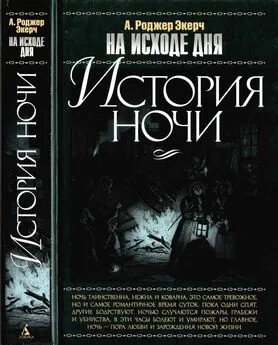

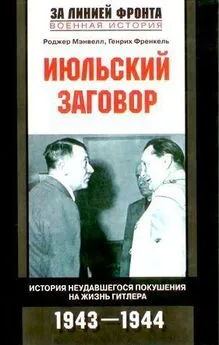
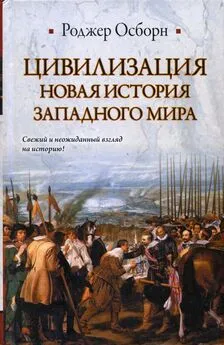
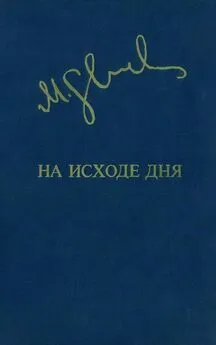
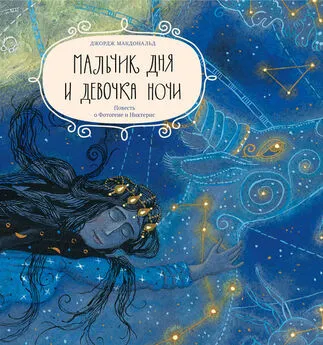

![Елена Асеева - Четыре дня, четыре ночи [СИ]](/books/1086617/elena-aseeva-chetyre-dnya-chetyre-nochi-si.webp)
